See also: SMR Alumni and Pets of SMR.
Lydia Bangura (bangura@umich.edu), Music Theory
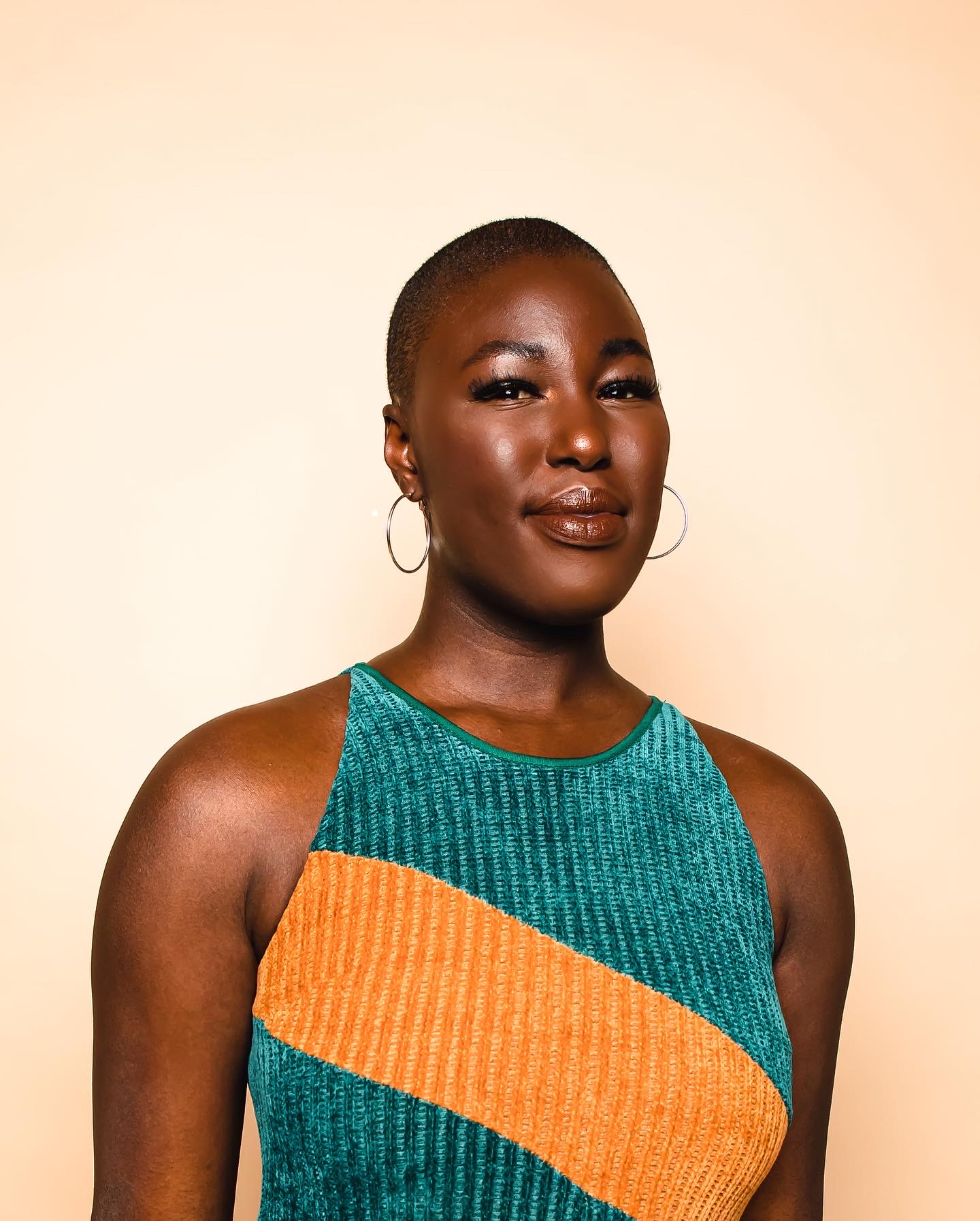
Lydia Bangura (she/her) is a singer and a pre-candidate in music theory. She also holds a bachelor’s degree from Northern Arizona University and a master’s degree from Roosevelt University, both in vocal performance. Bangura was selected in 2022 as an associate artist at the Atlantic Center for the Arts in New Smyrna Beach, Florida, where she had the honor of studying with mentor artist Dr. Philip Ewell. She is the founder and host of the music research podcast series, Her Music Academia, and is on the editorial board for the Society for Music Theory’s official podcast, SMT–Pod. Bangura also currently serves as the student representative on SMT’s Standing Committee on Race and Ethnicity. Her research interests include the intersection of performance and analysis, theory pedagogy, Black feminism/womanism in Black women’s music, and the instrumental works of Florence Price. Also a lifelong music performer, Bangura has experience studying violin, viola, and voice. She was recently the recipient of the National Association of Teachers of Singing Dillard Scholar Award. Her recent operatic roles include Musetta in Puccini’s La Boheme, Alcina in Handel’s Alcina, Marcellina in Mozart’s Le Nozze di Figaro, Amore in Gluck’s Orfeo ed Euridice, and the solo soprano in Judith Weir’s one woman show, King Harald’s Saga.
Arlo Banta (ajbanta@umich.edu), Historical Musicology
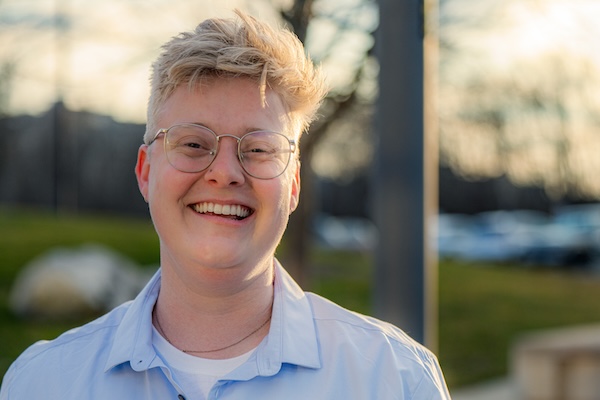
Arlo Banta (they/he) is a PhD candidate in historical musicology - his research focuses on gender, sexuality, and race in American vocal music and musical theatre. They hold a BA in music and theatre from Muhlenberg College, with respective concentrations in vocal performance and performance studies. He also works for the Gershwin Initiative as an editorial assistant, and beyond academics, he enjoys singing in choral ensembles and getting lost in a good novel.
Emma Beachy (ebeachy@umich.edu), Historical Musicology
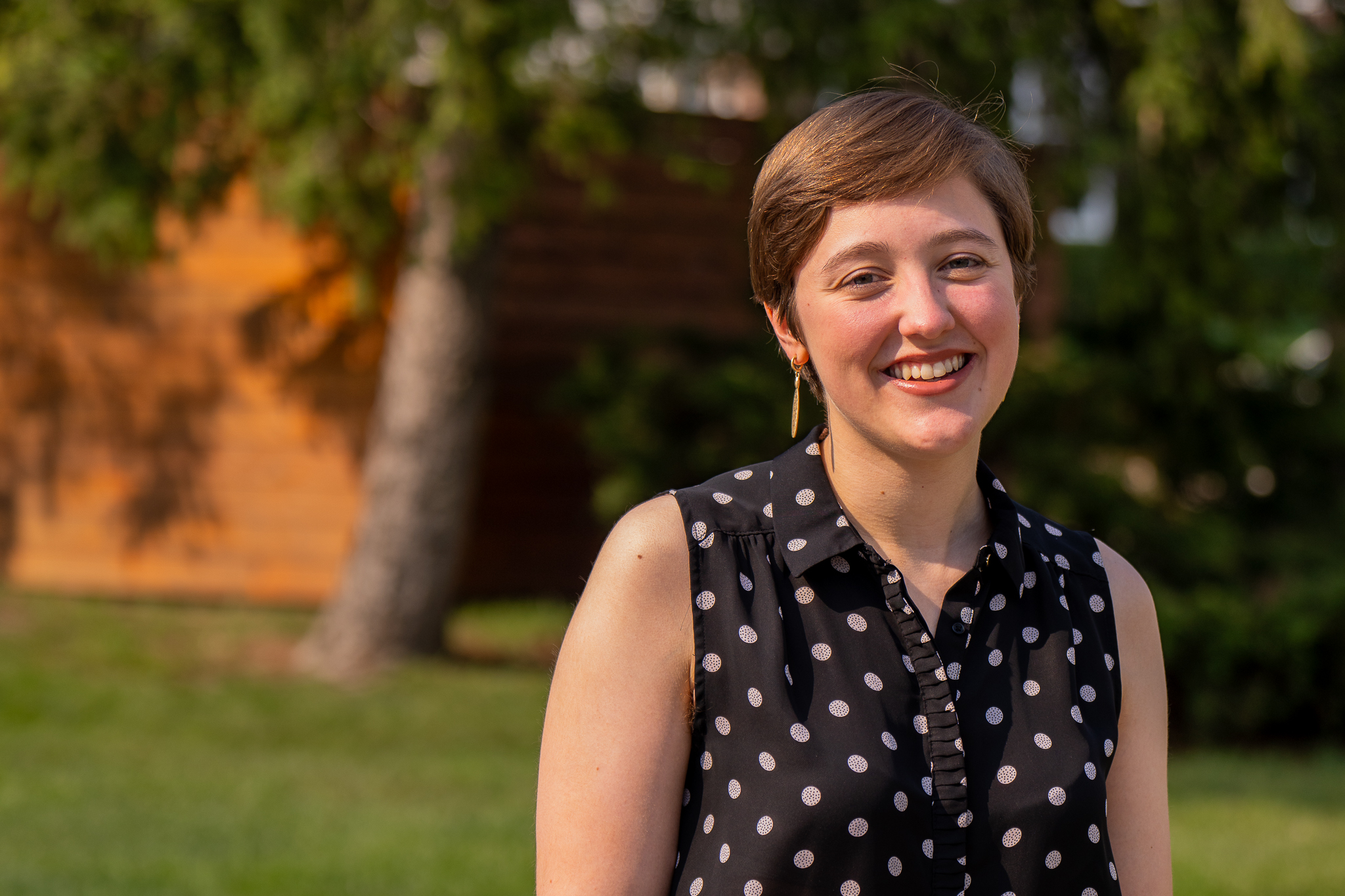
Emma Beachy is a PhD candidate in historical musicology. Her research centers on the relationship between popular music and conspiracy online, with a secondary interest in race and art music in the United States in the mid-twentieth century. You can find her work in the Journal of Mennonite Studies and the Journal of Jazz Studies. In her free time, she enjoys playing piano, baking, and getting lost in a good sci-fi novel.
Clay Conley (ctconley@umich.edu), Ethnomusicology
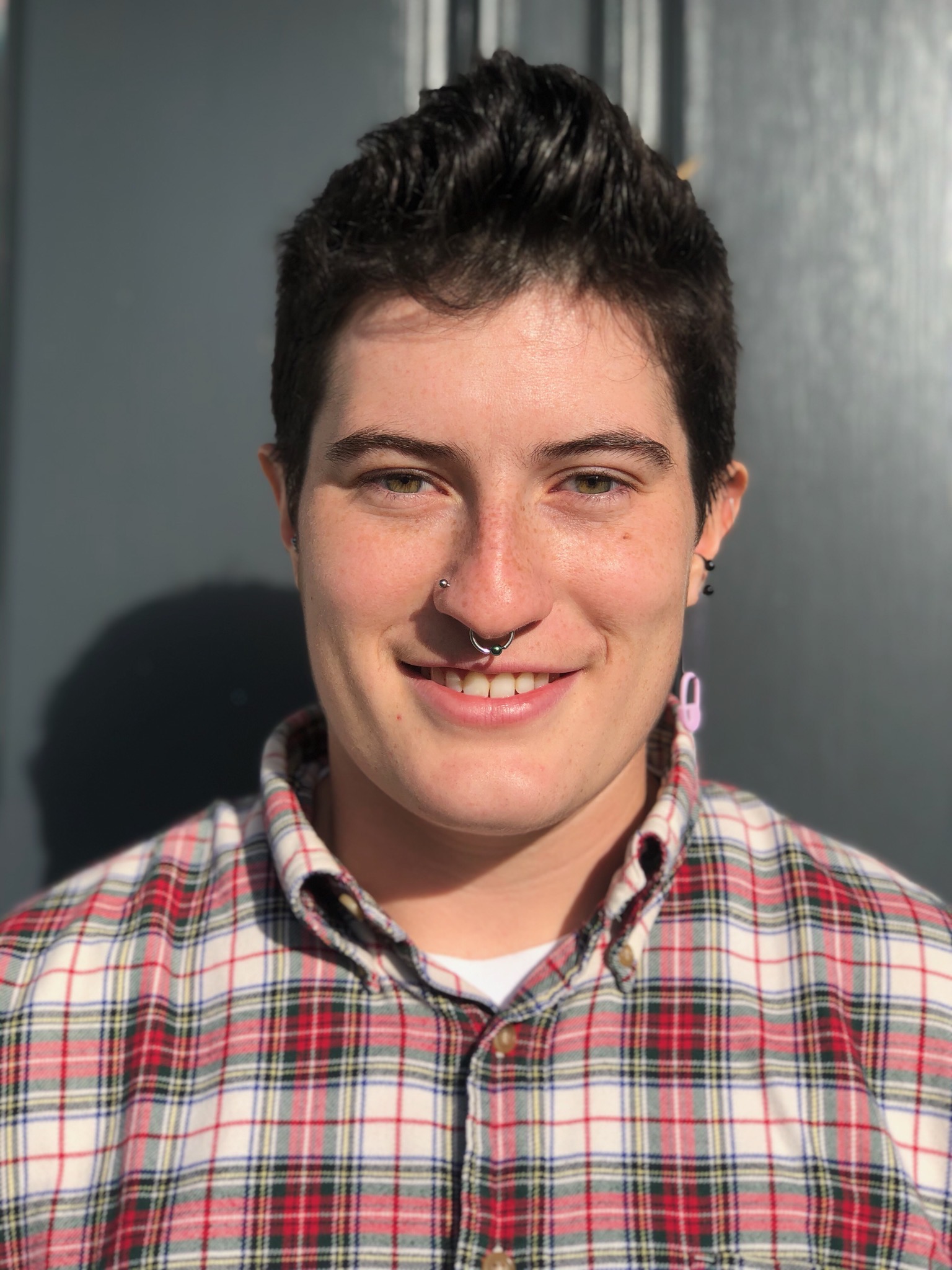
Clay Conley (they/them) is an ethnomusicology PhD candidate. They hold a BA in Music and Gender and Sexuality Studies from Swarthmore College. Their current research focuses on the experience of liveness through the lens of the live sound audio engineer. Their dissertation combines fieldwork, autoethnography, assemblage theory, and posthumanism to approach a new definition for liveness. Outside the classroom, they are an audio engineer at venues throughout South East Michigan and an olympic weightlifting coach.
Paige Dailey (daileypaige@umich.edu), Ethnomusicology
Paige Dailey is a pre-candidate in ethnomusicology.
Piper Foulon (pfoulon@umich.edu), Historical Musicology
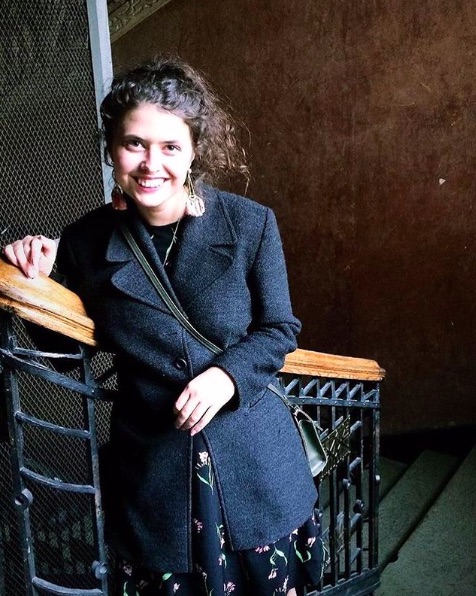
Piper Foulon (she/her) is a PhD candidate in historical musicology. She holds bachelor degrees in history and music from Pacific Lutheran University, where she completed thesis projects on the incidental music of The Bedbug by Dmitri Shostakovich, and on architectural conservation during the Siege of Leningrad. Her current research focuses on defining the musical uncanny in the context of the Russian avant-garde at the turn of the twentieth century. In her spare time, Piper enjoys writing songs, sewing, and laughing.
Angelina Gibson (ahgibson@umich.edu), Historical Musicology

Angelina Gibson is a third-year PhD student in Historical Musicology and holds a Bachelors in Music, English, and Religion from Augustana University with honors.
As a researcher, Gibson takes interest in exoticism in classical ballet and music as well as Asian-American choreographers and productions. Some of Gibson’s performance credits in piano and dance include South Dakota MTNA, Augustana Concerto-Aria, three original productions with Gibson’s dance company, The ArtiTänzer Project, and the choreographer for Muse Ye’s interdisciplinary recital (DMA, Collaborative Piano). Her research and writing has been presented at AMS, SEM, ICTMD, Sigma Tau Delta, The Clarinet Online, and the South Dakota Symphony Orchestra. Outside of her studies, she adores her two dogs (Marcato and Anastasia), reading novels, laughing with loved ones, and trying to rock climb.
Killian Grider (kgrider@umich.edu), Music Theory

Killian Grider (she/her, he/him) is a PhD student at the University of Michigan whose academic interests combine formal analyses of popular music alongside feminist and queer theory, particularly in the metagenre of EDM. Within this interfacing, queer subcultural music as well as the interrelation of social movements and trends in popular music appear quite often. Before Michigan, Killian earned a M.M. in Music Theory from New England Conservatory (‘22) and a B.A. in Chemistry and Music from Skidmore College (‘18). In past lives, Killian has worn many hats in the music industry, including professional singing, elementary school teaching, venue managing, and operating a private voice and music theory studio. Recent scholarly pursuits include “Sex, Money, and Power (Lady MacBeth of Mtsensk)” (2023) in DSCH Journal and “Queering the Dominant: Disco and the V-Chord’s Second Wave” masters lecture recital (2022).
Cecilia Hiros (chiros@umich.edu), Music Theory
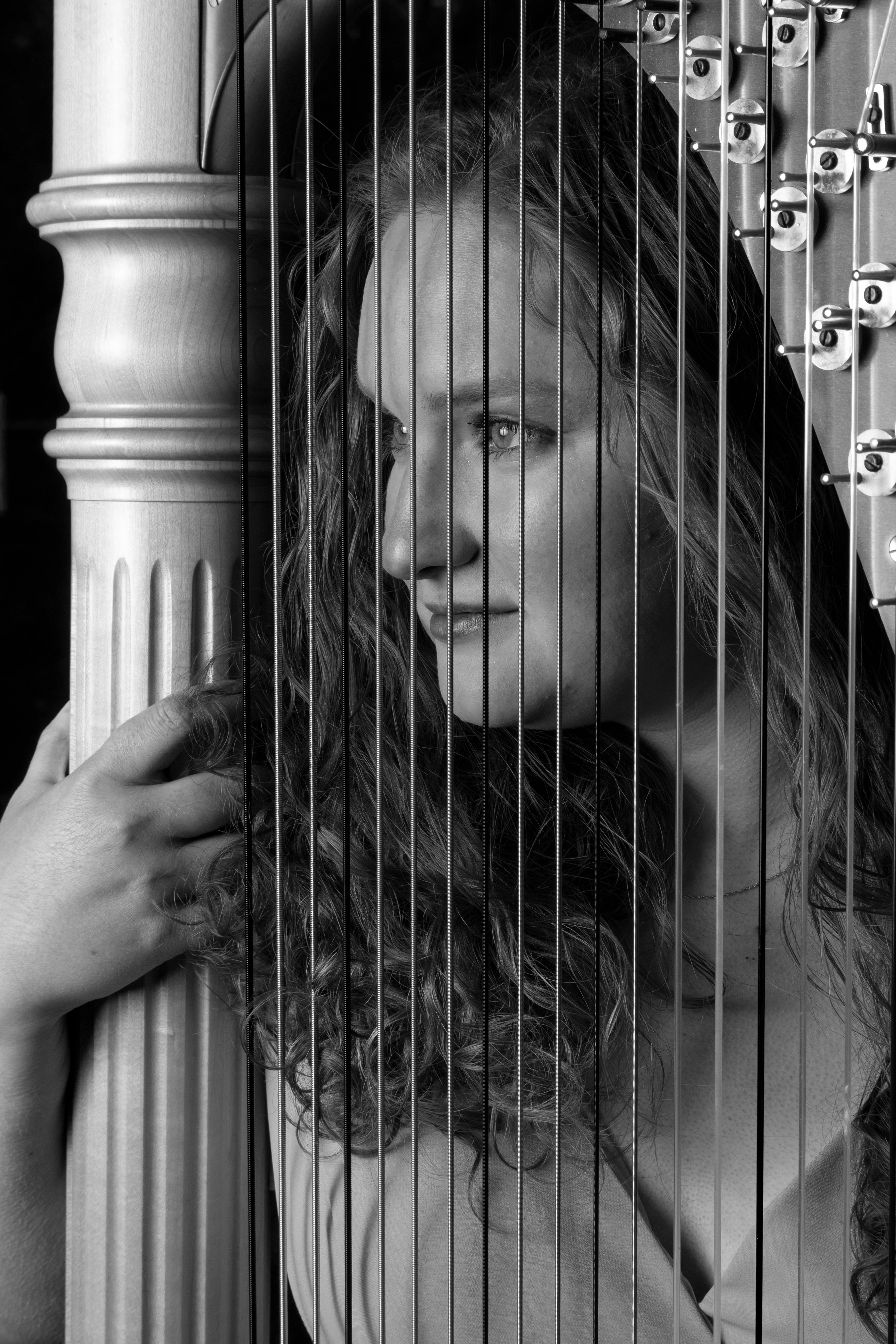
Cecilia (she/her) is a 5th-year PhD Candidate in Music Theory at the University of Michigan. She has completed two bachelor’s degrees in Harp Performance (‘21) and Music Theory (‘21) also at the University of Michigan. Cecilia’s research is centered around the intersection of Disability Studies and Music Theory, studying the perception and embodiment of disability through performance, composition, and listening. Her second focus includes sonic constructions of disability in video game music and Spatial Audio. As a disabled scholar, the core of her research and teaching philosophy is rooted in a deep commitment to disability advocacy and accessibility.
Kelly Hoppenjans (kellyhop@umich.edu), Historical Musicology

Kelly Hoppenjans (she/her) is a PhD pre-candidate in Musicology with a certificate in Digital Studies. She completed her BM in Musical Theatre at Northwestern University and her MM in Commercial Music at Belmont University, where she served as adjunct faculty for four years teaching commercial voice lessons, classes, and ensembles. Her research interests include amateur music production, affect and the digital, and how singers use digital technologies with their voices to construct identity and self. Kelly is also a singer-songwriter; her debut full-length album OK, I Feel Better Now was featured on NPR, The Alternative, Ghettoblaster, American Songwriter, and more. In her free time, she enjoys singing, playing guitar, sewing, knitting, and listening to too many podcasts.
Tom Ingram (tmingram@umich.edu), Music Theory
Tom Ingram is a PhD student in music theory at the University of Michigan. He is interested in the intellectual history and philosophical and political underpinnings of music theories, as well as formal analysis, music with wind instruments, and the theory and pedagogy of model composition. Recent papers have addressed form in the music of Carl Maria von Weber and the epistemology of fundamental bass theory. Originally from Manitoba, Tom has taught at Brandon University and holds degrees in music theory from McGill University and in clarinet performance from the University of Manitoba.
James Jarrett (jamesjar@umich.edu), Music Theory

James Jarrett is a pre-candidate in music theory at the University of Michigan. His research interests include music-text relationships, particularly in 20th century art song from the U.S.; approaches to song analysis grounded in literary theory; John Cage’s music; and aesthetics. In summer 2025 he presented at the Midwest Graduate Music Consortium, Music Theory Midwest, and the Society for Music Analysis annual meetings. He plays violin and has degrees in music and English literature from McGill University.
Joshua Kerobo (kerobo@umich.edu), Ethnomusicology

Joshua Kerobo is a pre-candidate in ethnomusicology, hailing from Edo State, Nigeria and Cincinnati, Ohio. He holds both a B.A. in international studies and music from the American University in Washington D.C. As the American-born son of Nigerian immigrants, his academic interests and research aspirations have naturally centered around the histories, religions, and cultures of Nigeria and Ghana, as well as their connections to the larger Black Atlantic community. His unique subjectivity has been the exigence of his current research interests, such as music as an indicator of Muslim subjectivity, Islamic soundscape studies in Northern Nigeria as an indicator of the influence of judicial and extrajudicial Islamic fundamentalists in the region, and “Black Organic Intellectualism,” a revolutionary reframing of the traditionally Gramscian “Organic Intellectual” in the context of cross-cultural black/African communication and liberation. In his free time, Joshua enjoys playing the saxophone, composing music, playing and watching soccer, and cooking.
Sunhong Kim (ksunhong@umich.edu), Ethnomusicology
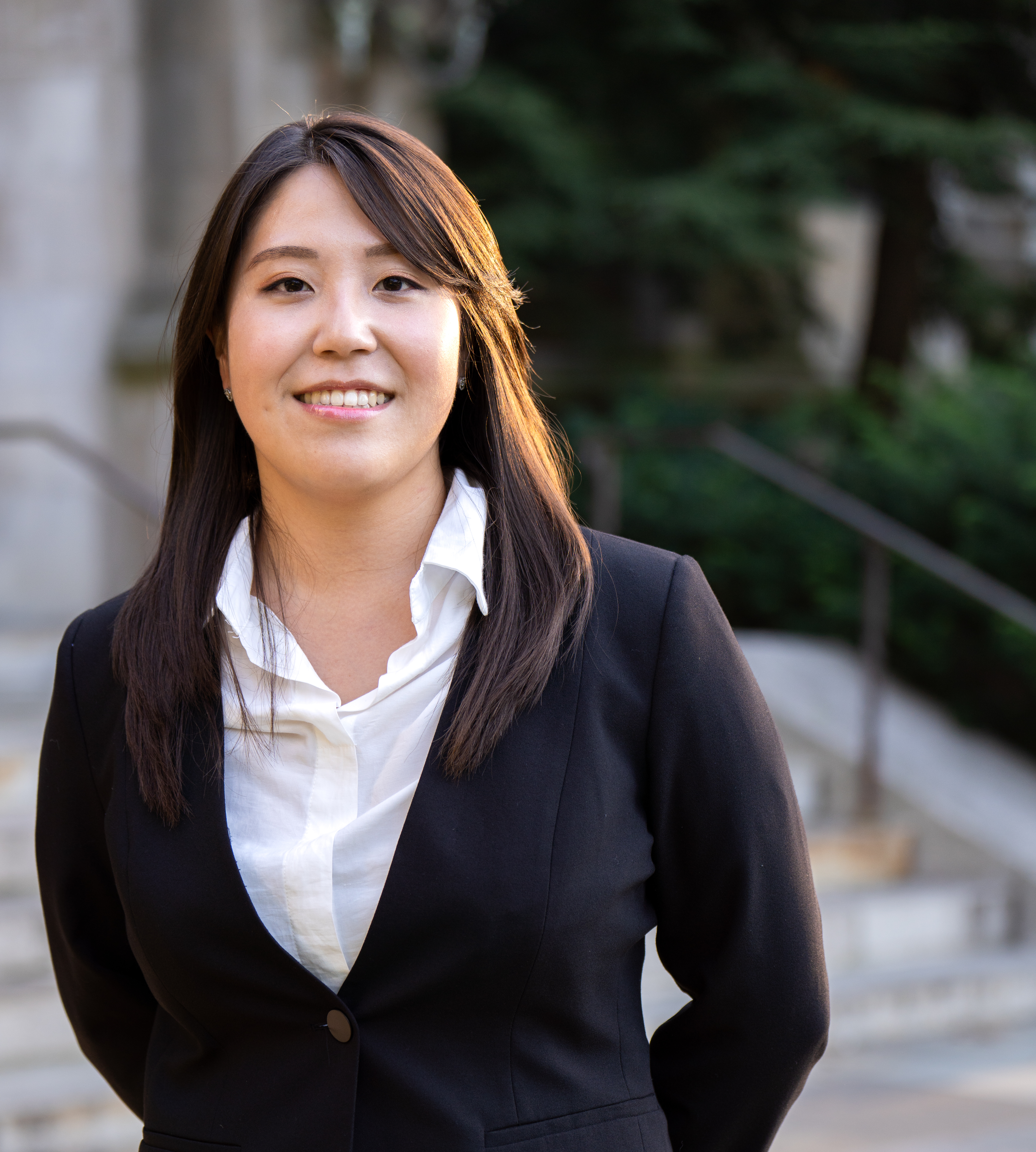
Sunhong Kim (she/her) is a Ph.D. candidate in Ethnomusicology and a student in the Women’s and Gender Studies Certificate Program and the World Performance Certificate Program at the University of Michigan.
Her doctoral research explores the aural significance of instrumental sound in the performance practices of gugak (traditional Korean music) ensembles in contemporary South Korea. Centering aurally as a critical lens, she investigates how the politics of sound and the sound of politics shape performance communities in a globalizing Korea. As a p’iri performer, she actively engages with Korean immigrant communities to promote and present gugak in the U.S. In addition, she leads and mentors the undergraduate student club Sinaboro (a Korean percussion ensemble at U-M), working to bring resources, fellowships, and an enriched educational environment to its members.
Jose Melendez (josemel@umich.edu), Historical Musicology
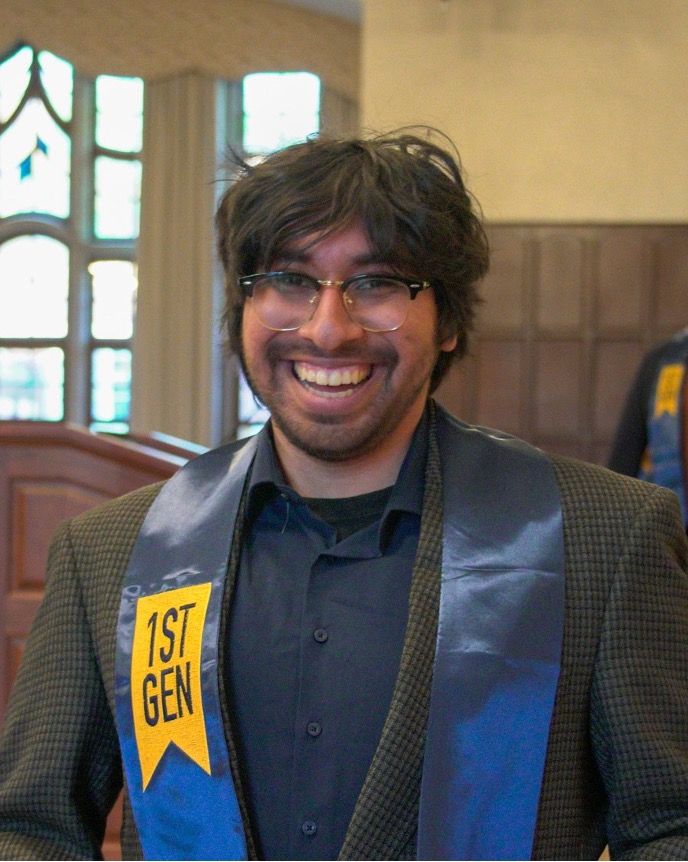
Jose Melendez (he/him) is PhD pre-candidate in historical musicology. He holds a Bachelor of Arts in Music from the University of Michigan. His research interests involve identity and its role in popular music, specifically within the realms of rock, pop, and hip hop. He is currently an editorial assistant for the Music of the United States of America (MUSA).
Micah Mooney (mpmooney@umich.edu), Music Theory

Micah Mooney (b. 1998) is a composer-theorist based in Ann Arbor, Michigan whose work explores music, story, and language. His research interests include music in narrative art forms and the interaction of music and linguistics in the composer’s creative process. He has presented his research at the Musical Theater Interest Group at SMT, Music Theory Midwest, the Western University Graduate Symposium on Music, and AMS-Southwest. As a composer, Mooney has had compositions presented during festivals at Indiana State University and the University of North Georgia, and he has co-written and produced a full-length musical, Antigone & the King. Past and current composition teachers include Bright Sheng, Evan Chambers, Roshanne Etezady, Baljinder Sekhon, David Wolfson, Sarah Genevieve Burghart Rice, and Joseph Hasper. He has a B.M. in Music from Grove City College and an M.A. in Music Theory and an M.M. in Composition from Penn State University. He is currently pursuing a Ph.D. in Music Theory from the University of Michigan.
Rhianna Nissen (rnissen@umich.edu), Historical Musicology

Rhianna is a Ph.D. Candidate in Historical Musicology. Her dissertation “Singing for a New Nation: Liberalism and Identity in Oratorios of the Vormärz” (tentative title) explores the political discourse in amateur choral singing and repertoire in Germany before 1848. In addition to 19th century German music, Rhianna is interested in music and politics more broadly, serving on the editorial team of the Music and Politics: In the Moment online publication, which focuses on music and political issues of the current day. An avid choral singer, Rhianna has sung with choirs such as the University of Michigan Chamber Choir, Washington Master Chorale, and University Musical Society’s Choral Union. She holds a BM in Vocal Performance (magna cum laude) from the Shenandoah Conservatory in Winchester, VA, and an MM in Music History from the University of Cincinnati—College Conservatory of Music. In her free time, she enjoys sailing, cooking, and doting on her puppy, Ilsa.
Yrsala Peterson (ypeterso@umich.edu), Ethnomusicology
Yrsala Peterson is a pre-candidate in ethnomusicology.
Ingrid Racine (iracine@umich.edu), Ethnomusicology
Ingrid Racine is a pre-candidate in ethnomusicology.
Luis Armando Rivera (luisarri@umich.edu), Music Theory
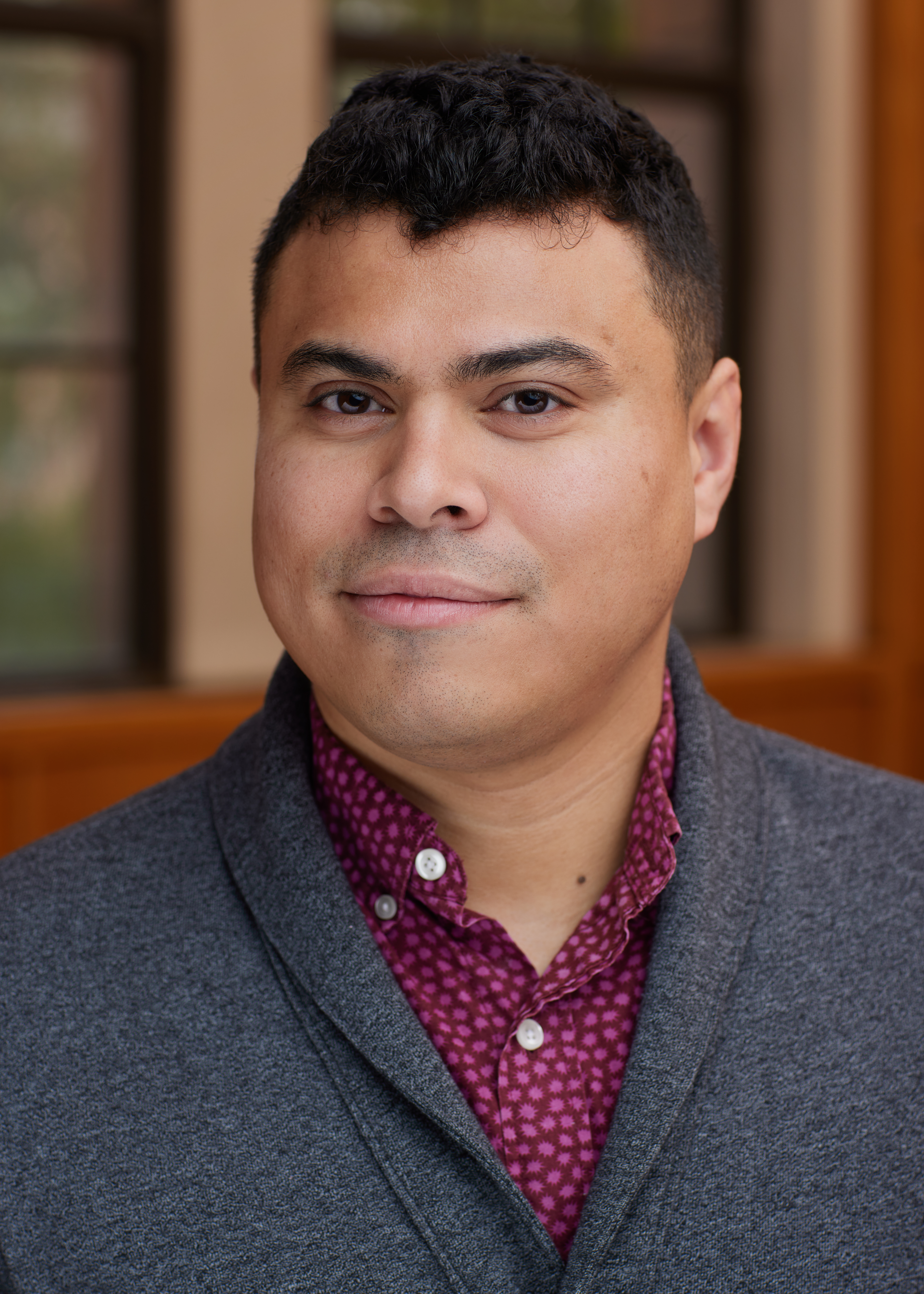
Luis Armando Rivera is a doctoral student in music theory at the University of Michigan. He received his bachelor’s degrees in mathematics and piano performance from Augusta University, a master’s degree in piano performance and piano pedagogy from Georgia State University, and a master’s degree in music theory from the University of Washington. Before coming to the University of Michigan, he was a Lecturer of music theory at the University of Washington and a fellow Cleveland Institute of Music’s Future of Music Faculty Fellowship. His research interests include mathematical music theory, serialism, transformation theory, the music of Latin American, and video game music.
Juan Riveros (riveros@umich.edu), Music Theory
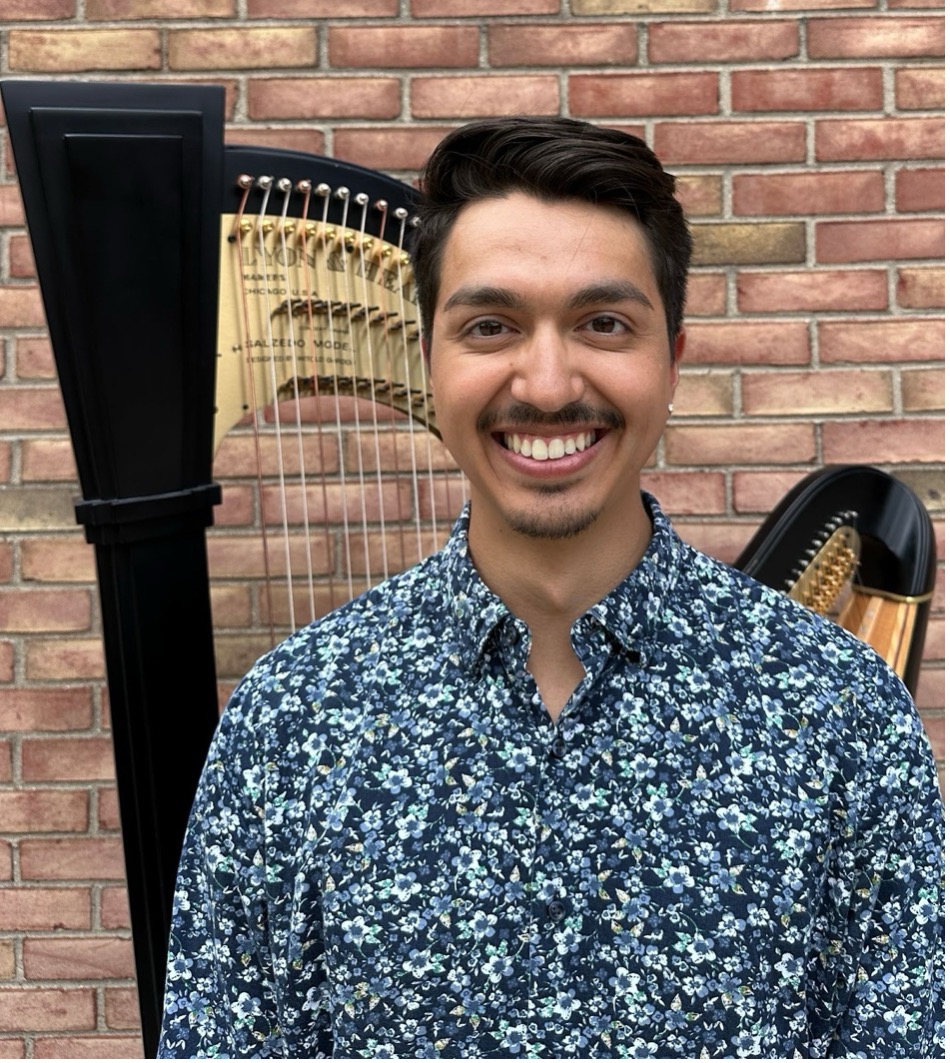
Juan Riveros is one of a new generation of young harpists who bridge a variety of styles and artistic avenues, building audiences and fostering fresh appreciation for an instrument with ancient and diverse traditions. A seasoned soloists, Riveros’ experience includes performances at the Rio Harp Festival (2023 and 2024), São Paulo Harp Festival, various solo recitals through the American Harp Society’s Winner’s Outreach Program, and the 2019 and 2022 International Harp Competitions. Accolades include Award Winner in the 2022 Lyon & Healy Awards, Outstanding Instrumentalist in Harp at the 2022 and 2023 Sphinx SOPA Competitions, Award Winner in the 2020 Anne Adams Awards Competition, Third Prize in the Young Professional Division of the 2019 American Harp Society National Competition, and Grand Prize in the Lewisville Lake International Concerto Competition. Orchestra experience includes performances as Guest Principal Harp with the Cleveland Orchestra, Atlanta Symphony Orchestra, Ann Arbor Symphony Orchestra, Flint Symphony Orchestra, Kalamazoo Symphony Orchestra, and the Louisiana Philharmonic Orchestra. Riveros holds Bachelor’s and Master’s degrees in Harp Performance and Music Theory from the Cleveland Institute of Music, where he studied with Yolanda Kondonassis. Riveros is currently pursuing a Ph.D. in Music Theory at the University of Michigan.
In addition to an active performance career, Riveros is the Instructor of Harp at Michigan State University and maintains a private studio. In his instruction, Riveros is devoted to crafting constructive approaches to harp pedagogy and music theory fundamentals. His research interests focus on providing accessible resources regarding the performance practice and repertoire of the harp (especially repertoire and traditions of Latin American origin), and music theory pedagogy. Riveros currently serves as the Diversity Coordinator of the American Harp Society (AHS) and as a Co-Chair for the IDEA Committee.
Joao Rocha (rochajoao@umich.edu), Historical Musicology

João Rocha is a PhD pre-candidate in historical musicology at the University of Michigan. Born in Belo Horizonte, Brazil, his research explores the intersection of musico-dramatic narratives, post-colonialism, race, philosophy, and nationalism in Brazilian Art Music from the late nineteenth and early twentieth centuries. João aims to investigate how literature, politics, and imported racial ideologies influenced Brazilian music and produced an unevenly shaped and always incomplete mosaic of Brazilianness.
João’s writing has been published in the journal Rising Voices in Ethnomusicology, and he is part of the 2025 AMS Explore cohort. João earned a BM in viola performance from Western Illinois University, where he was a recipient of the President’s International String Quartet scholarship.
Tommaso Saturnia (saturnia@umich.edu), Historical Musicology
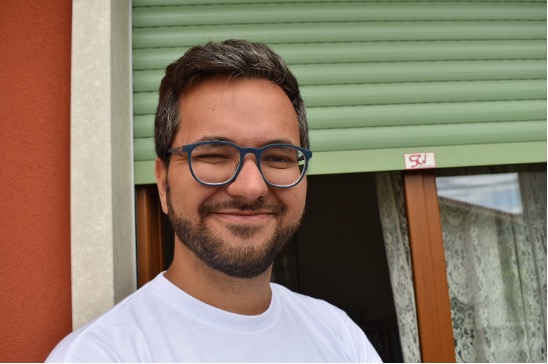
Tommaso Saturnia is a PhD pre-candidate in Musicology. He holds degrees in piano performance from Verona State Conservatory in Italy (B.M. in 2015, M.M. in 2018 magna cum laude) and composition degrees from Trento State Conservatory of Music (M.M. in 2024), where he was also the recipient of the 2024 President’s Award for Academic Achievement and Leadership and the 2024 Pankonin Award (with a project led by composer Theo Popov). Recently, Tommaso’s works have been commisioned and premiered by prestigious ensembles from around the world. In 2023, the San Francisco Contemporary Music Players debuted his piece Through the Planetary Nebula for chamber orchestra at Herbst Theatre in San Francisco. Also recently, the Sofia Philharmonic Orchestra performed his symphonic work Clinamen in Bulgaria Hall, in Sofia. In October 2021, the State Conservatory of Trento premiered his chamber opera INGENIUM, for three soloists and chamber ensemble, with sold-out performances in both Trento and Riva del Garda.
His research explores the music and cultural dynamics of post-WWII Italy, with a particular emphasis on film music and the legacy of Ennio Morricone.
Christopher Sherwood-Gabrielson (cdsg@umich.edu), Music Theory and Composition
Christopher Sherwood-Gabrielson is a candidate in music theory and composition.
Jonah Stemen (stemenjonah@umich.edu), Music Theory
Jonah Stemen is a pre-candidate in music theory.
Sarah Tobin (tobinsarah@umich.edu), Music Theory
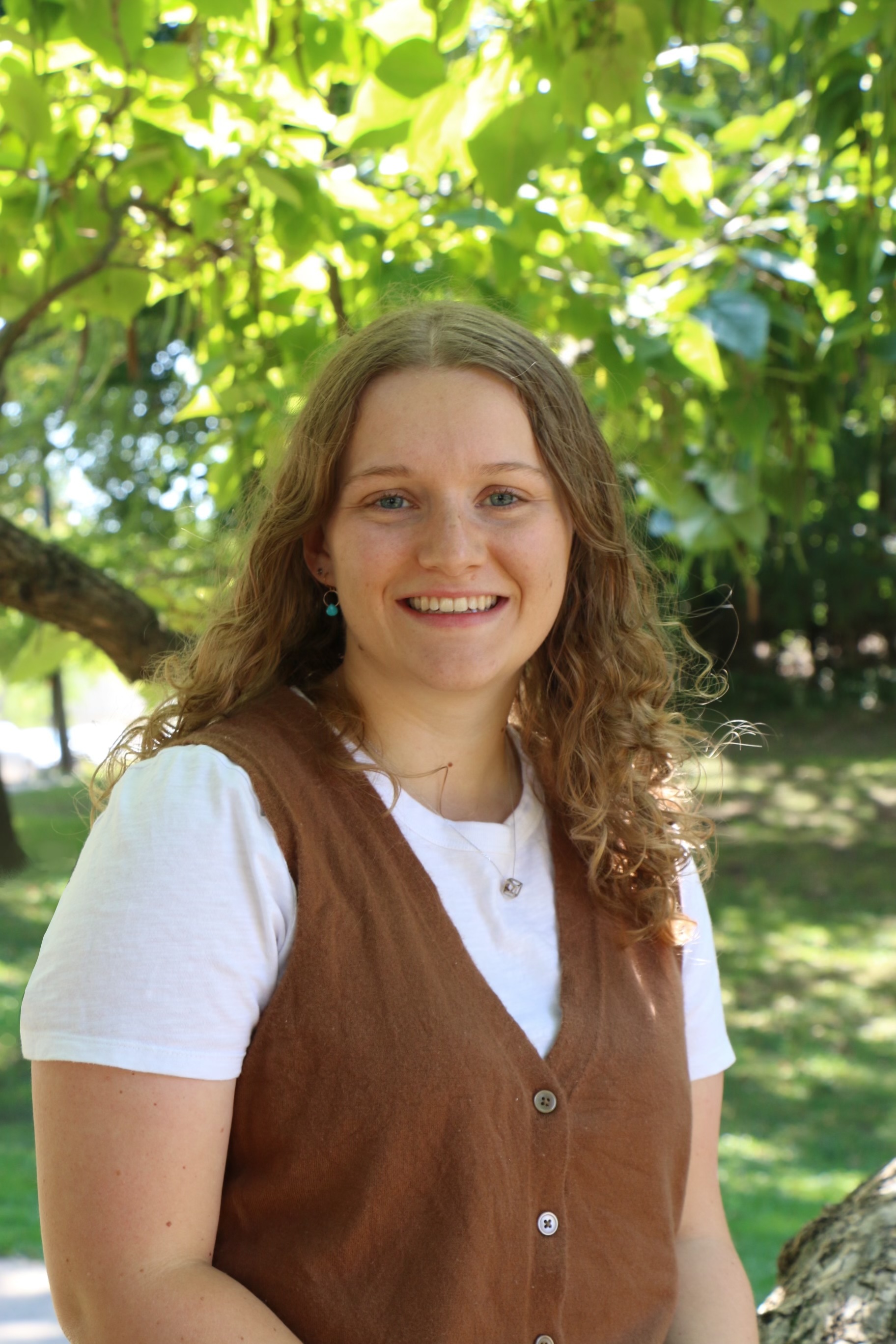
Sarah Tobin (she/her) is a PhD pre-candidate in music theory. Sarah received her Bachelor of Music from McGill University in viola, and she earned her master’s degree in music theory at Michigan State University. Her research centers around gender and queer expression in popular music. In a recent paper on Janelle Monáe, Sarah examined how Monáe’s music persona transformed across her career to challenge cultural perceptions of Black and queer individuals. Sarah is also interested in rhythm and meter in 20th-century tonal music, specifically with Hindemith’s viola repertoire. Sarah has presented her work at various regional, national, and international conferences including SMT, Music Theory Midwest, and the SMI Postgrad Conference in Dublin, Ireland. Sarah has taught both written theory and aural skills within the undergraduate curriculum at MSU, and she performs regularly as a violist. She also enjoys cooking, solving crossword puzzles, and spoiling her cat, Finnegan. In her free time, Sarah is a full-time student at the University of Michigan.
Mayna Tyrrell (tyrrellm@umich.edu), Ethnomusicology
Mayna Tyrrell (she/her) is a doctoral candidate in ethnomusicology. She holds a BM in musicology from the University of Illinois at Urbana-Champaign, where she wrote a senior thesis on music therapy applications towards schizophrenia, and a MM in ethnomusicology from Florida State University, where her thesis examined traumatic memory in diaspora through a choral work centering on the sent-down movement during the Chinese Cultural Revolution. Now at the University of Michigan, her dissertation explores disability, gender, and embodiment in the transnational taiko community, focusing primarily on Japan and the U.S.
William van Geest (vangeest@umich.edu), Music Theory
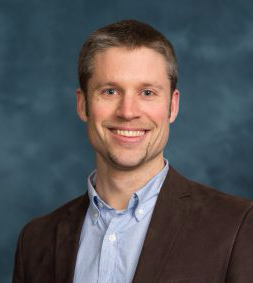
William van Geest is a candidate in music theory. He holds a B.A. from Calvin College (majors in philosophy, music history, and piano performance), Master’s degrees from the University of Ottawa (piano performance) and McGill University (music theory), and a certificate in Medieval and Early Modern Studies from U-M. His areas of research interest are the history of music theory, medieval grammar, rhythm and meter, and early-20th-century music. William has presented papers at several national and international conferences, including those of SMT, EuroMAC, the SMA UK, MusCan, and SysMus. William’s dissertation examines the appropriation by music theorists of the chorale and the history of this practice. William’s work is supported by the Social Sciences and Humanities Research Council of Canada. William enjoys running, swimming, and eating fine food made by the culinarily-gifted members of SMR.
Yuhan Wang (starryw@umich.edu), Ethnomusicology

Yuhan Wang is a PhD pre-candidate in ethnomusicology. She pays attention to the intangible cultural heritage of music and the related cultural interactions. She is particularly interested in Chinese qin culture (guqin) about its aesthetic analysis, philosophical interpretation, ecology concerning, and intellectual history in premodern history, as well as the continuity and discontinuity discourse for traditional culture under contemporary society in the context of informatization and globalization such as Taiwanese Hengchun folk music. She is also interested in Ludomusicology, especially digital scenes and fields that music engages with. Yuhan has presented papers at several conferences, including SEM (Society for Ethnomusicology) 2023 Annual Conference, 2023 AAS (Association for Asian Studies)-in-Asia Conference, Taiwan Musicology Forum’s 2022 Annual Conference, CHIME (European Foundation for Chinese Music Research) 22nd Annual Conference, and ICTMD (International Council for Traditions of Music and Dance) 2025. Yuhan is also affiliated with Lieberthal-Rogel Center for Chinese Studies at the University of Michigan. In her free time, she enjoys playing guqin, photography, graphic designing, audio production technology, and writing poetry.
Eric Whitmer (ewhitmer@umich.edu), Historical Musicology
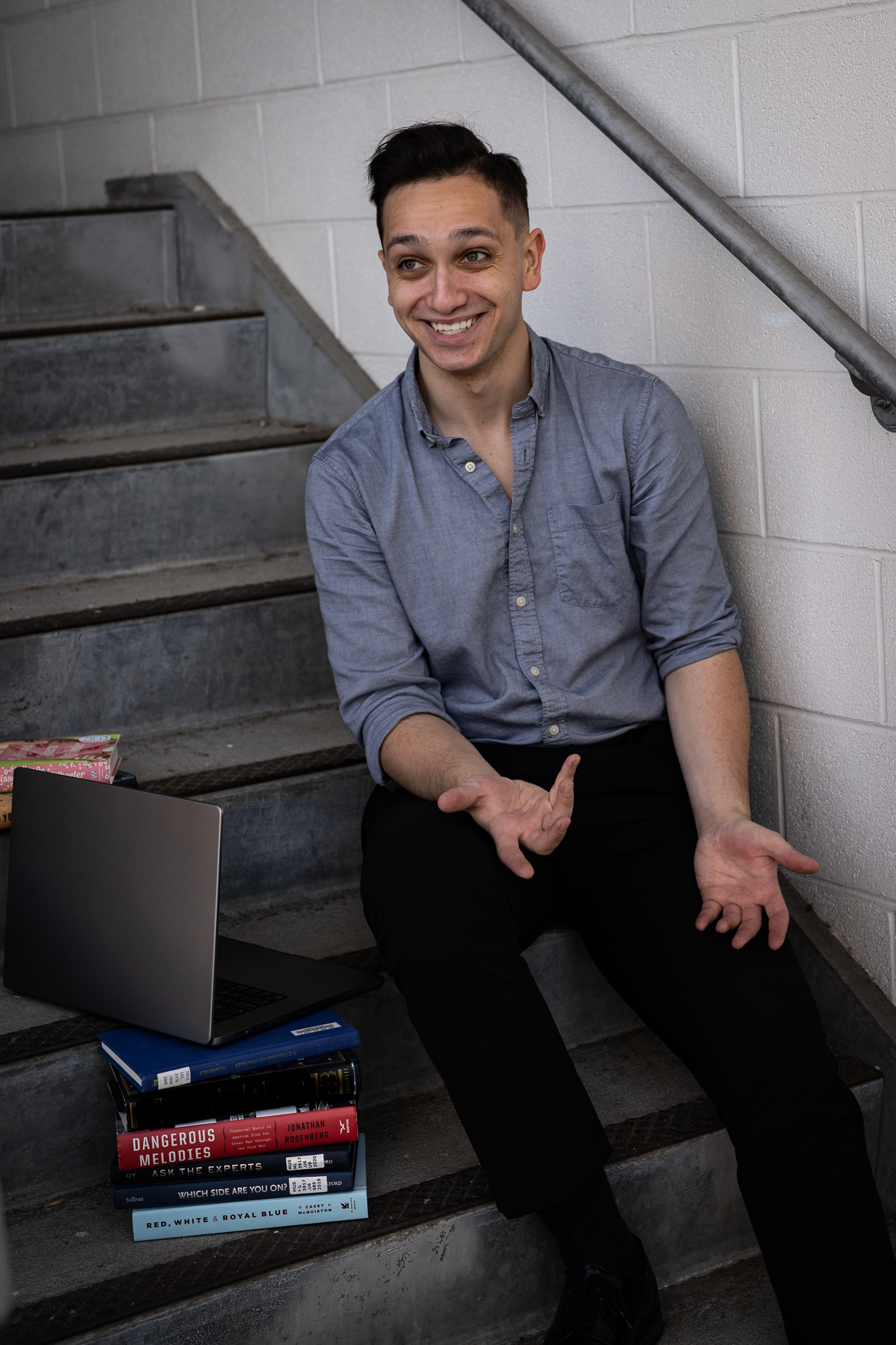
Eric Whitmer is an interdisciplinary musician, artist, and scholar interested in the intersections of music, morality, and community. Eric performs as the percussionist in Sono Trio and is the Resident Carillonist for Grosse Pointe Memorial Church and Kirk in the Hills Presbyterian Church. At the University of Michigan, they are a Ph.D. Pre-candidate in Musicology with Historical Emphasis and are pursuing a certificate in Digital Studies. Their musicological work focuses on American musical culture in the 20th and 21st centuries related to music as a care & harm practice across the domains of education, philanthropy, and therapy. Additionally, Eric is a member of the Digital Accessible Futures Lab and regularly pursues research related to disability studies. In their limited spare time, Eric can be found baking some new and challenging pastry, behind a camera taking a portrait of a friend, or on a paddleboard in one of Michigan’s many great (pun intended) lakes.
Ming Wilson (mjxw@umich.edu), Music Theory
Ming Wilson is a pre-candidate in music theory.
Eric Zheng (zhengeri@umich.edu), Ethnomusicology
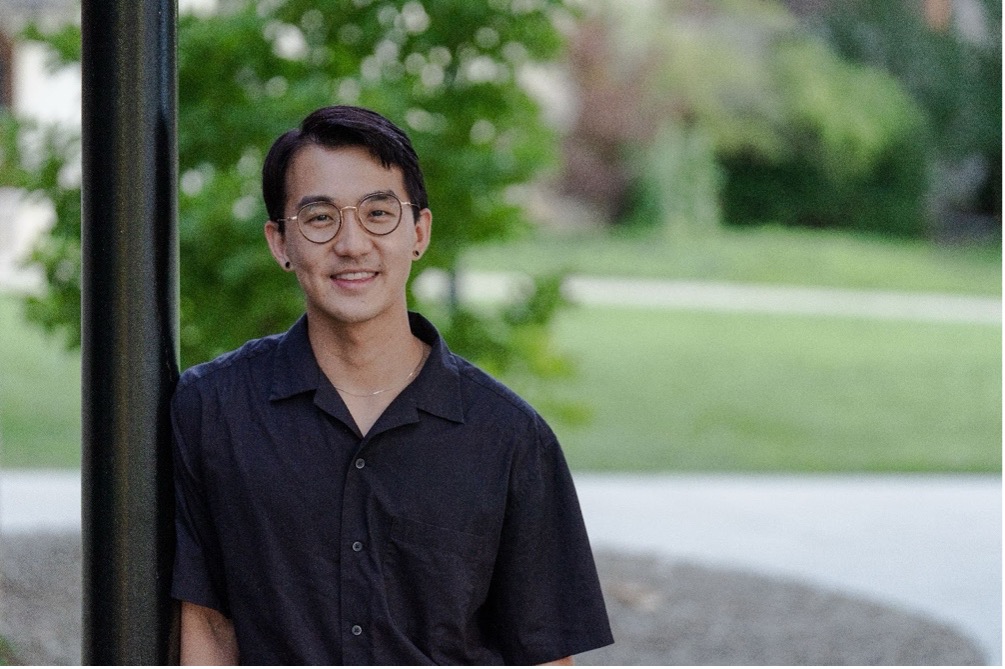
Eric Zheng (he/him) is a PhD student in ethnomusicology at the University of Michigan. Prior to Michigan, Eric earned a BM in Saxophone Performance and a BA in Economics from Northwestern University. He then completed an MM in Saxophone Performance at Michigan State University and undertook a fellowship at Bard’s U.S.-China Music Institute where he experimented with the saxophone in Chinese music and studied the suona. He is currently interested in transnational timbre markers in the music and lived experiences of folks in the Asian American jazz and contemporary classical Chinese communities. Outside of music, Eric enjoys playing pickup basketball, devouring Asian cuisine, and following the competitive smash scene.
Chuyi Zhu (chuyizhu@umich.edu), Ethnomusicology
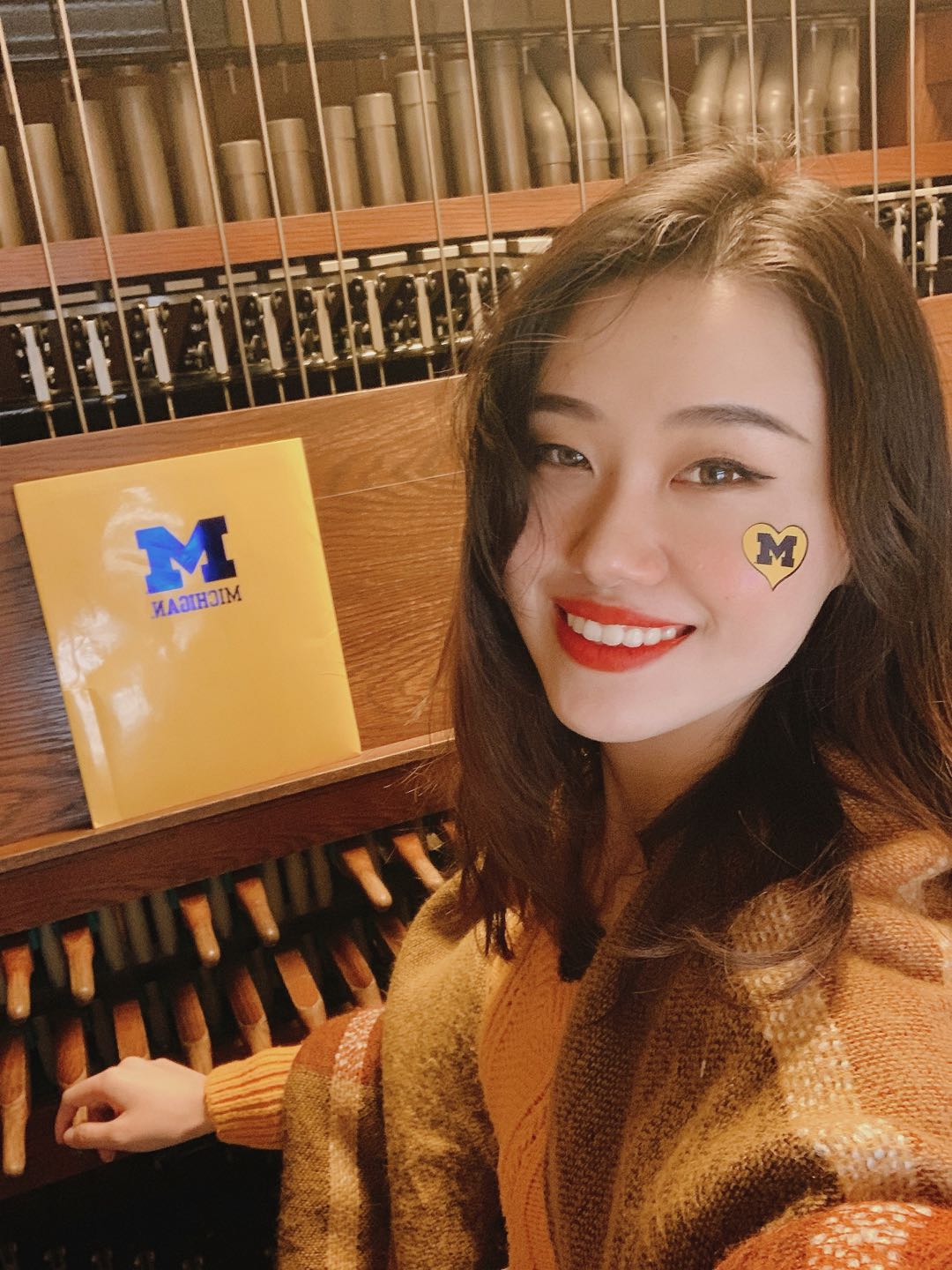
Chuyi Zhu is a doctoral candidate in ethnomusicology with research interests in women’s lament, cultural tourism, and heritage studies. She holds a B.A. in both Economics and Music and has pursued a wide range of academic interests. She received a certificate in Business from Harvard Business School Online and another in Museum Studies from the University of Michigan. Beyond academia, Chuyi enjoys consulting work. She has served as an in-house consultant for Maison Youlou, a French fashion company, where she played a key role in facilitated a cooperative project with the Chinese government to establish an applied art center in Yunnan province, dedicated to preserving the traditional arts and crafts of ethnic groups in China. In her free time, Chuyi also enjoys watching movies and swimming.
 Society for Music Research
Society for Music Research